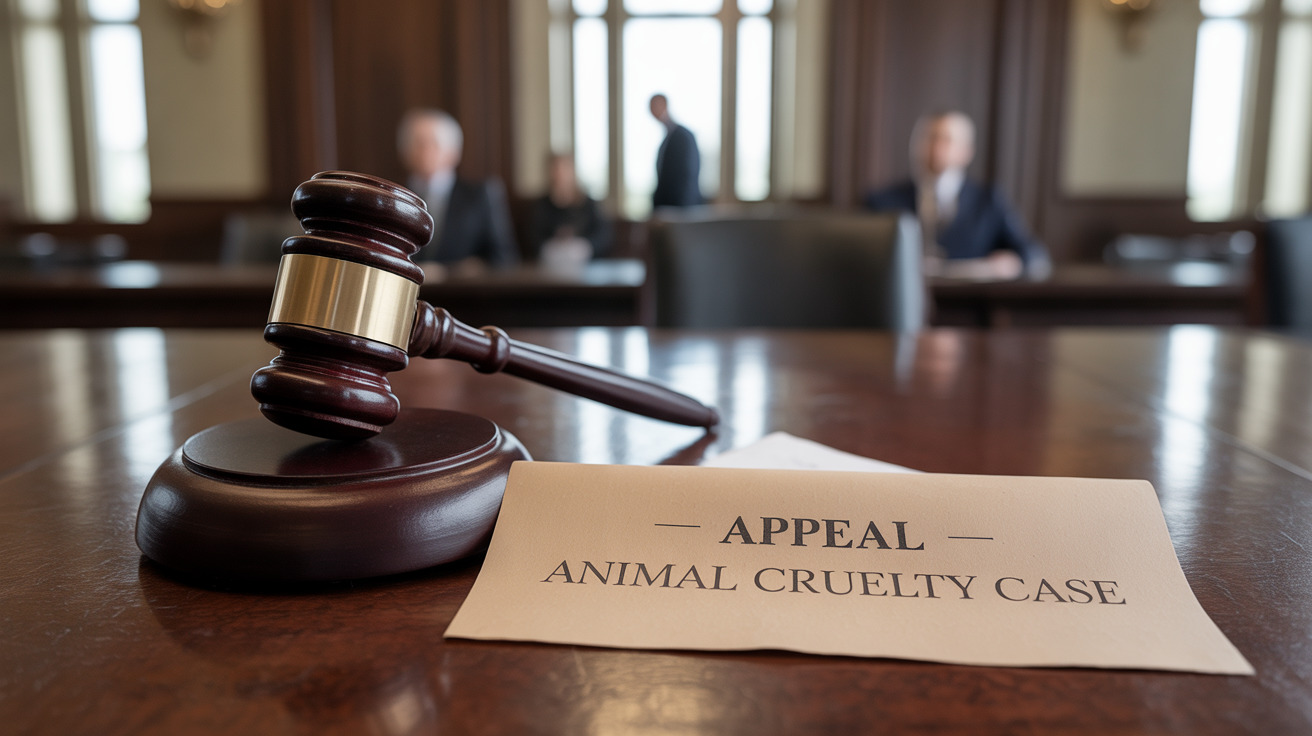A recent animal cruelty case in South Carolina has drawn attention to the state's animal torture laws after a Richland County woman convicted of animal torture filed an appeal of her conviction. This case underscores the serious legal consequences pet owners face when charged with animal abuse and highlights the importance of understanding animal care legal requirements in South Carolina.
The appeal filing demonstrates how animal cruelty cases can extend through the legal system, bringing ongoing attention to animal welfare enforcement in the state. For pet owners throughout South Carolina, this case serves as a reminder of the strict penalties for animal cruelty and the legal responsibilities that come with pet ownership.
Understanding South Carolina Animal Torture Laws
South Carolina takes animal cruelty seriously, with comprehensive laws designed to protect animals from abuse and neglect. The state's animal torture laws classify severe cases of animal abuse as felony offenses, which can result in significant legal consequences including imprisonment, substantial fines, and lifetime bans on animal ownership.
Under South Carolina law, animal torture typically involves the intentional infliction of unnecessary pain, suffering, or death upon an animal. These charges represent some of the most serious animal-related offenses in the state's legal code, reflecting the gravity with which lawmakers view animal welfare protection.
Penalties for Animal Cruelty in South Carolina
The penalties for animal cruelty in South Carolina vary based on the severity of the offense and the circumstances involved. Felony animal abuse charges can result in:
- Prison sentences ranging from several months to multiple years
- Substantial financial penalties and court costs
- Mandatory restitution for veterinary care and animal rehabilitation
- Lifetime prohibition on owning or possessing animals
- Community service requirements focused on animal welfare education
These severe penalties reflect the state's commitment to deterring animal abuse and protecting vulnerable animals from harm.
How to Report Animal Neglect in South Carolina
Recognizing and reporting animal abuse is crucial for protecting animals in communities across South Carolina. Pet owners and concerned citizens should know how to identify signs of animal neglect and abuse, which may include:
- Animals showing signs of malnutrition, dehydration, or untreated injuries
- Pets kept in unsanitary or dangerous living conditions
- Animals displaying behavioral signs of trauma or fear
- Evidence of physical harm or deliberate injury to animals
Reports of suspected animal abuse can be made to local animal control agencies, law enforcement, or humane societies. Many jurisdictions offer anonymous reporting options to encourage community members to speak up for animals who cannot protect themselves.
Pet Owner Responsibilities in South Carolina
All pet owners in South Carolina have legal obligations to provide proper care for their animals. These responsibilities include providing adequate food, water, shelter, and veterinary care when needed. Pet owners must also ensure their animals are kept in safe, sanitary environments and are not subjected to cruel treatment or neglect.
Understanding these legal requirements helps pet owners avoid unintentional violations while ensuring their animals receive the care they deserve. Regular veterinary checkups, proper nutrition, and safe housing are fundamental aspects of responsible pet ownership that align with state legal requirements.
Animal Welfare Enforcement and Resources
South Carolina has multiple agencies and organizations dedicated to animal welfare enforcement and education. Richland County animal control, along with other local agencies throughout the state, works to investigate reports of animal abuse and ensure compliance with animal protection laws.
The South Carolina humane society and other animal welfare organizations also play crucial roles in rescue efforts, rehabilitation of abused animals, and public education about proper animal care. These organizations often work closely with law enforcement to ensure that animals removed from abusive situations receive necessary medical care and rehabilitation.
Frequently Asked Questions
What constitutes animal torture under South Carolina law?
Animal torture in South Carolina involves the intentional infliction of unnecessary pain, suffering, or death upon an animal. This can include physical abuse, severe neglect, or deliberately harmful treatment that causes significant suffering to the animal.
How can I report animal cruelty anonymously in South Carolina?
Most South Carolina counties offer anonymous reporting options through their animal control agencies or local law enforcement. You can typically call animal control hotlines, submit online reports, or contact local humane societies to report suspected animal abuse while maintaining your anonymity.
What happens to animals rescued from abuse situations in South Carolina?
Animals rescued from abuse situations typically receive immediate veterinary care and are placed in protective custody with animal control agencies or rescue organizations. They may undergo rehabilitation before being made available for adoption to loving homes once they have recovered from their trauma.
Moving Forward: Protecting South Carolina's Animals
The ongoing legal proceedings in this Richland County case serve as a reminder that animal cruelty cases can have lasting impacts on both the legal system and the community. As this appeal moves through the courts, it continues to highlight the importance of South Carolina's animal protection laws and the serious consequences for those who violate them.
For pet owners throughout the state, this case emphasizes the critical importance of understanding and following proper animal care standards. By staying informed about legal requirements and reporting suspected abuse, community members can help protect vulnerable animals and ensure that South Carolina remains a state where animals are treated with the respect and care they deserve.






